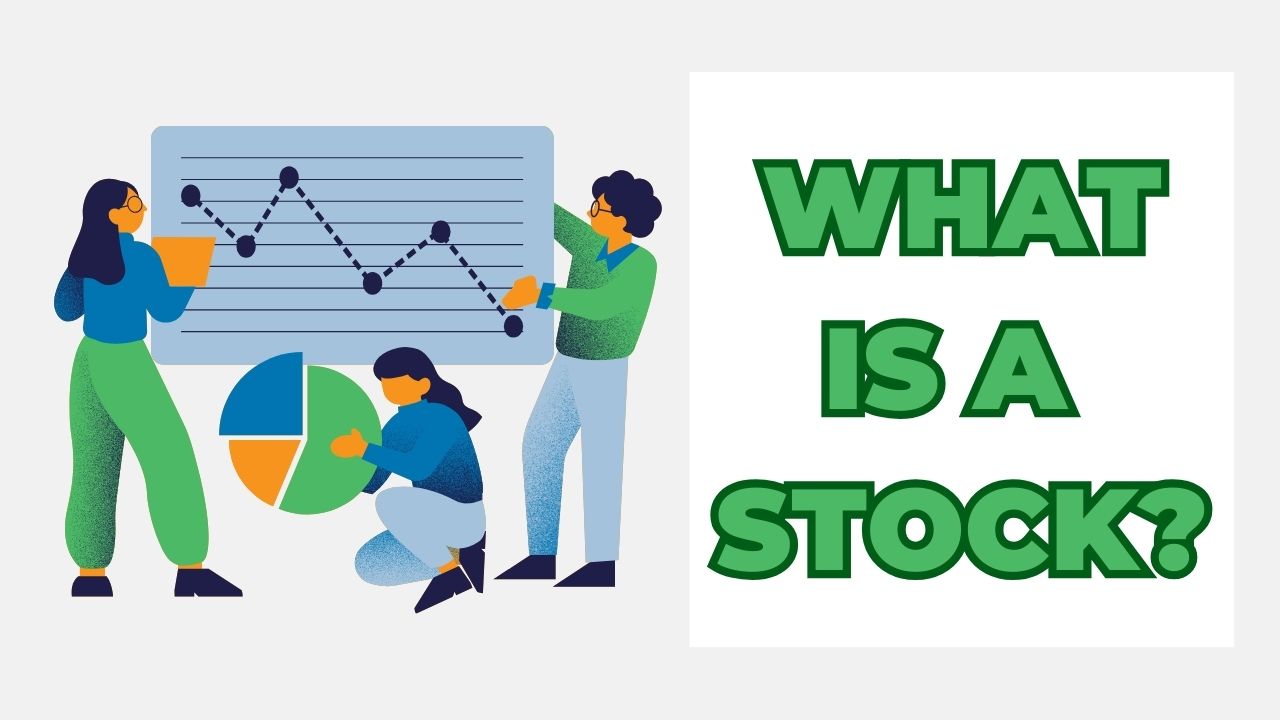In the world of finance, everyone must have come across the term ‘stock’. But what is a stock? Is it a thing, an adjective, or a quantity? How is it related to finance? We will be learning about all these aspects. Let’s get started.
Table of Contents
What is a simple definition of stock?
Stocks are shares of ownership in a company. When you buy stock, you’re essentially buying a small piece of that company. As a stockholder, you have a claim on a portion of the company’s assets and earnings. Owning stock can provide potential for capital appreciation as the company grows and becomes more profitable. It also exposes investors to the risks associated with the company’s performance and the broader market fluctuations. Understanding these dynamics is important for making informed investment decisions in the stock market.
Why is stock called stock?
The term “stock” likely originated from the practice of merchants in medieval times who would display their wares on a wooden shelf, or “stock,” in front of their places of business. Over time, this term expanded to represent a portion of ownership in a business.
What are the 4 main types of stock?
There are four main types of stocks:
- Common Stock: This is the most typical type of stock that represents ownership in a company and provides voting rights in shareholder meetings.
- Preferred Stock: Preferred stockholders typically have a higher claim on assets and earnings than common stockholders, but they usually don’t have voting rights.
- Growth Stocks: These are stocks of companies that are expected to grow at a rate higher than the average market growth. They typically reinvest most of their profits into expansion rather than paying dividends.
- Value Stocks: These are stocks of companies that are considered undervalued compared to their intrinsic worth. Investors buy them in the hope that their price will eventually increase.
What is the stock market?
The stock market refers to the collection of markets and exchanges where the issuing and trading of equities or stocks of publicly held companies, bonds, and other types of securities take place, either through formal exchanges or over-the-counter markets.
What is a stock exchange?
A stock exchange is a marketplace where stocks are bought and sold. It provides a platform for investors to trade stocks of publicly listed companies. Examples of stock exchanges include the Bombay Stock Exchange (BSE) & National Stock Exchange (NSE) located in Mumbai, Maharashtra.
How do stock exchanges work?
Stock exchanges work as centralized platforms where buyers and sellers come together to trade stocks. Here’s a simplified overview of how they operate:
- Listing: Companies that want to sell shares to the public apply to be listed on a stock exchange. Once approved, their shares become available for trading.
- Order Placement: Investors place orders to buy or sell stocks through brokers or online trading platforms. These orders specify the stock, quantity, and price at which they are willing to trade.
- Matching Orders: The stock exchange matches buy and sell orders based on price and time priority. When a buyer’s bid matches a seller’s ask, a trade is executed.
- Price Discovery: Through continuous buying and selling, stock prices are determined by supply and demand dynamics. Prices fluctuate throughout the trading day as new information and investor sentiment change.
- Trading Hours: Stock exchanges have specific trading hours during which transactions can occur. Some operate electronically, allowing trading to happen 24/7, while others have set trading sessions.
- Regulation: Stock exchanges are regulated by government agencies to ensure fair and transparent trading. Regulations aim to prevent fraud, manipulation, and insider trading, maintaining investor confidence in the market.
- Clearing and Settlement: Once a trade is executed, the stock exchange facilitates the clearing and settlement process. This involves confirming the transaction, transferring ownership of shares, and ensuring that funds are exchanged between the parties involved.
Also Read – What is an IPO in Simple Words? – 6 Important Steps to Know
What is stock also known as?
Stocks go by various names—shares or equities—and their history traces back to the Dutch East India Company in 1602. Back then, investors bought shares, becoming part-owners and sharing in the company’s profits.
What is the first stock called?
The first stock ever issued is believed to be by the Dutch East India Company in 1602. It allowed investors to buy shares of the company, and in return, they received a portion of the company’s profits.
Conclusion
A stock represents ownership that a company sells to the public. If you own stock, it means you have some ownership in that company. But how much ownership do you have? That’s determined by the number of shares.
for more information, visit Wikipedia.

